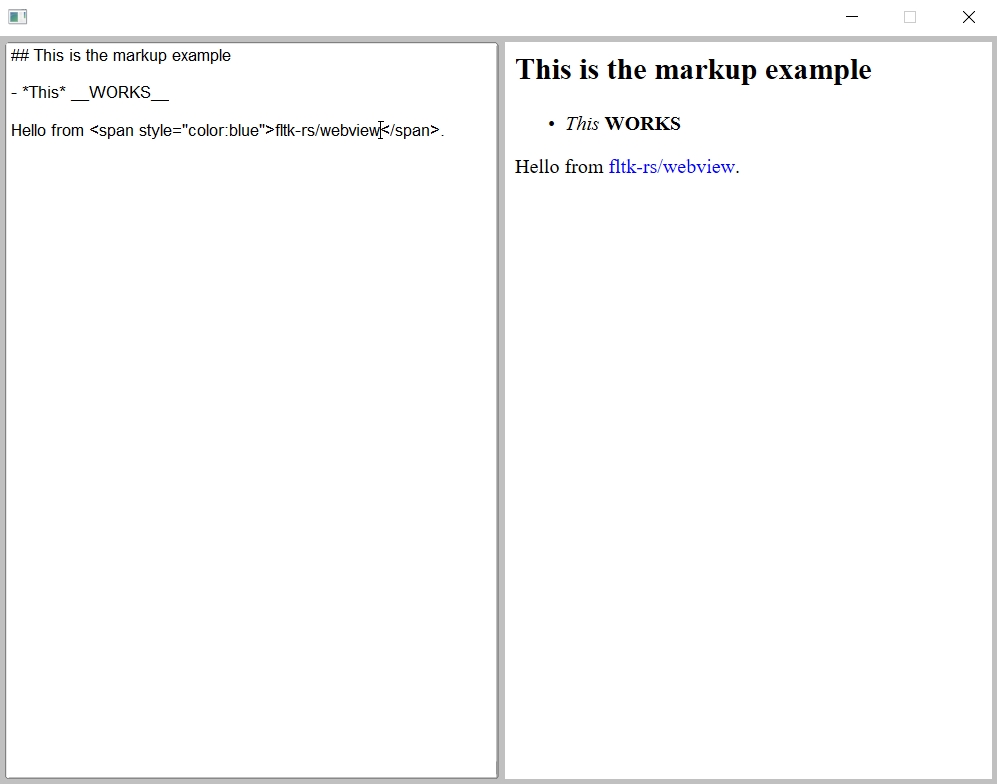This provides webview functionality for embedded fltk windows. The webview bindings are based on the webview-official-sys crate, which was modified for use with FLTK and to use the static WebView2Loader library on Windows along with a newer version of webview.
Add fltk-webview to your fltk application's Cargo.toml file:
[dependencies]
fltk = "1"
fltk-webview = "0.2"Then you can embed a webview using fltk_webview::Webview::create:
use fltk::{app, prelude::*, window};
fn main() {
let app = app::App::default();
let mut win = window::Window::default()
.with_size(800, 600)
.with_label("Webview");
let mut wv_win = window::Window::default()
.with_size(790, 590)
.center_of_parent();
win.end();
win.make_resizable(true);
win.show();
let mut wv = fltk_webview::Webview::create(false, &mut wv_win);
wv.navigate("https://google.com");
app.run().unwrap();
}- fltk-rs's dependencies, which can be found here.
- On Windows: No other dependencies.
- On MacOS: No other dependencies.
- On X11/wayland platforms, webkit2gtk:
- Debian-based distros:
sudo apt-get install libwebkit2gtk-4.0-dev. - RHEL-based distros:
sudo dnf install webkit2gtk3-devel.
- Debian-based distros:
- On windows, building using the gnu toolchain will still require deploying the dlls (webview.dll and WebView2Loader.dlls, which can be found in the
target/<profile>directory. - On X11/wayland platforms:
- Need help with Gnome's mutter window manager fighting for ownership of the webview window, causing flickering in text fields!
- If running on Wayland, you need to pass the GDK_BACKEND=x11 environment variable for webkit2gtk to work properly.

